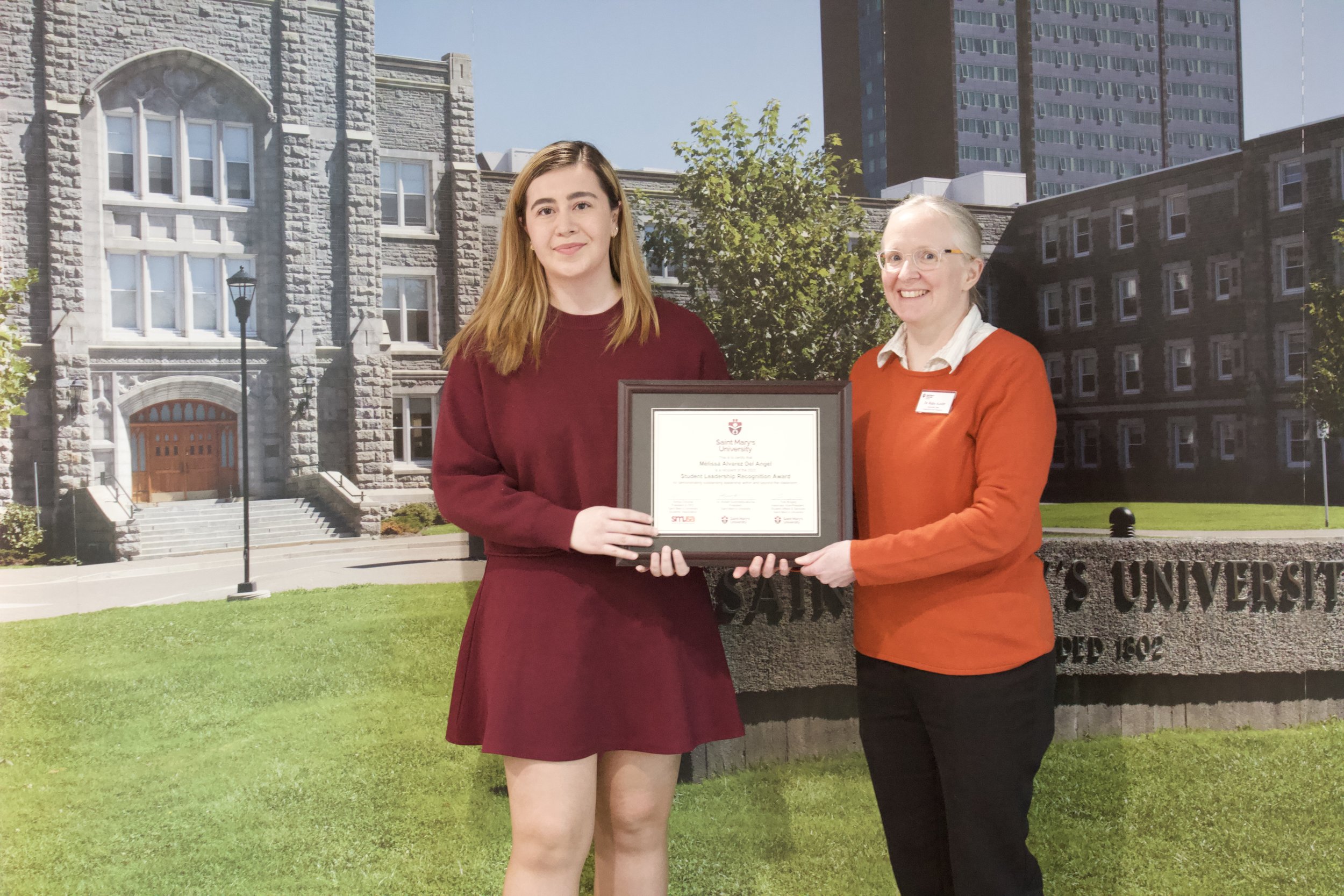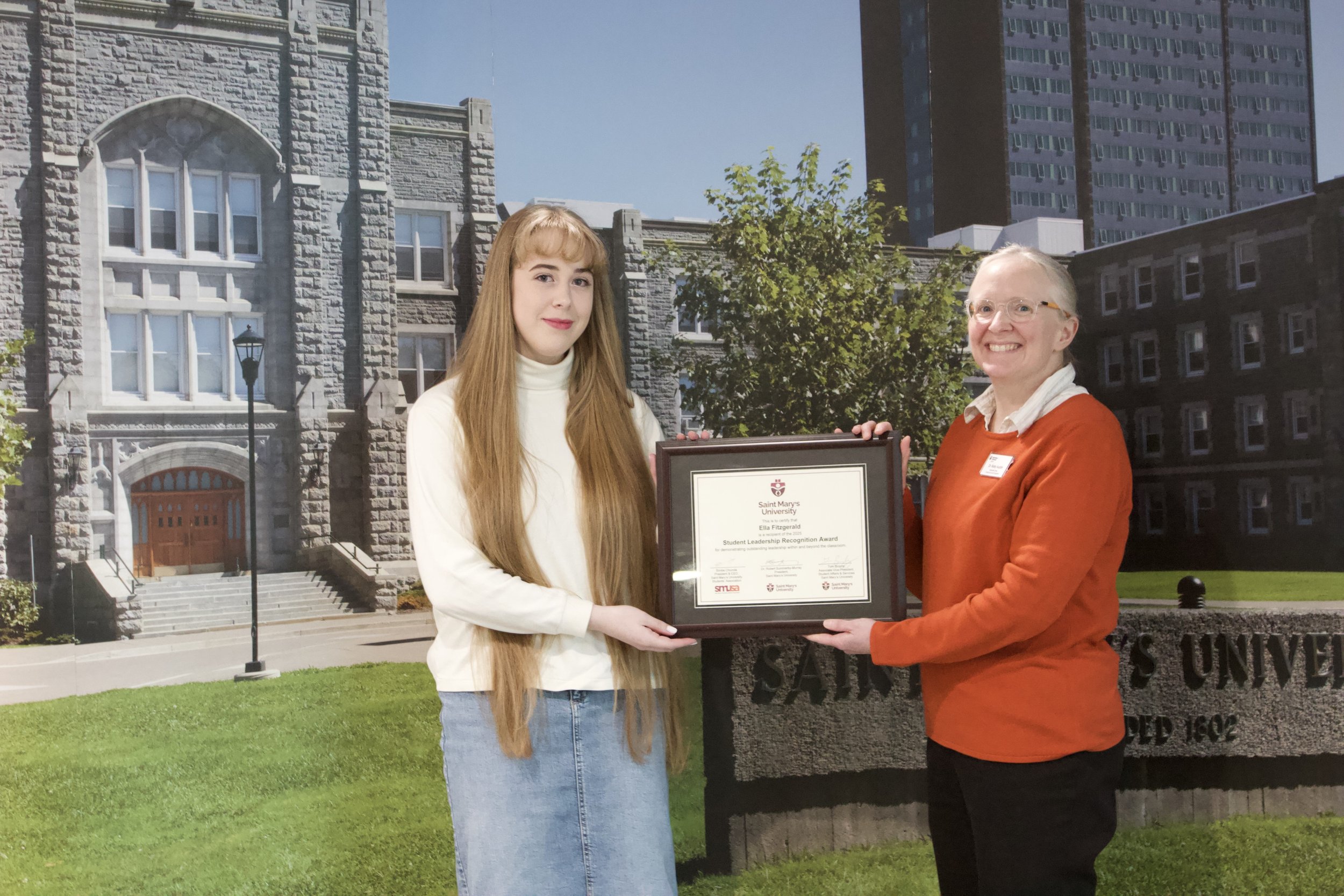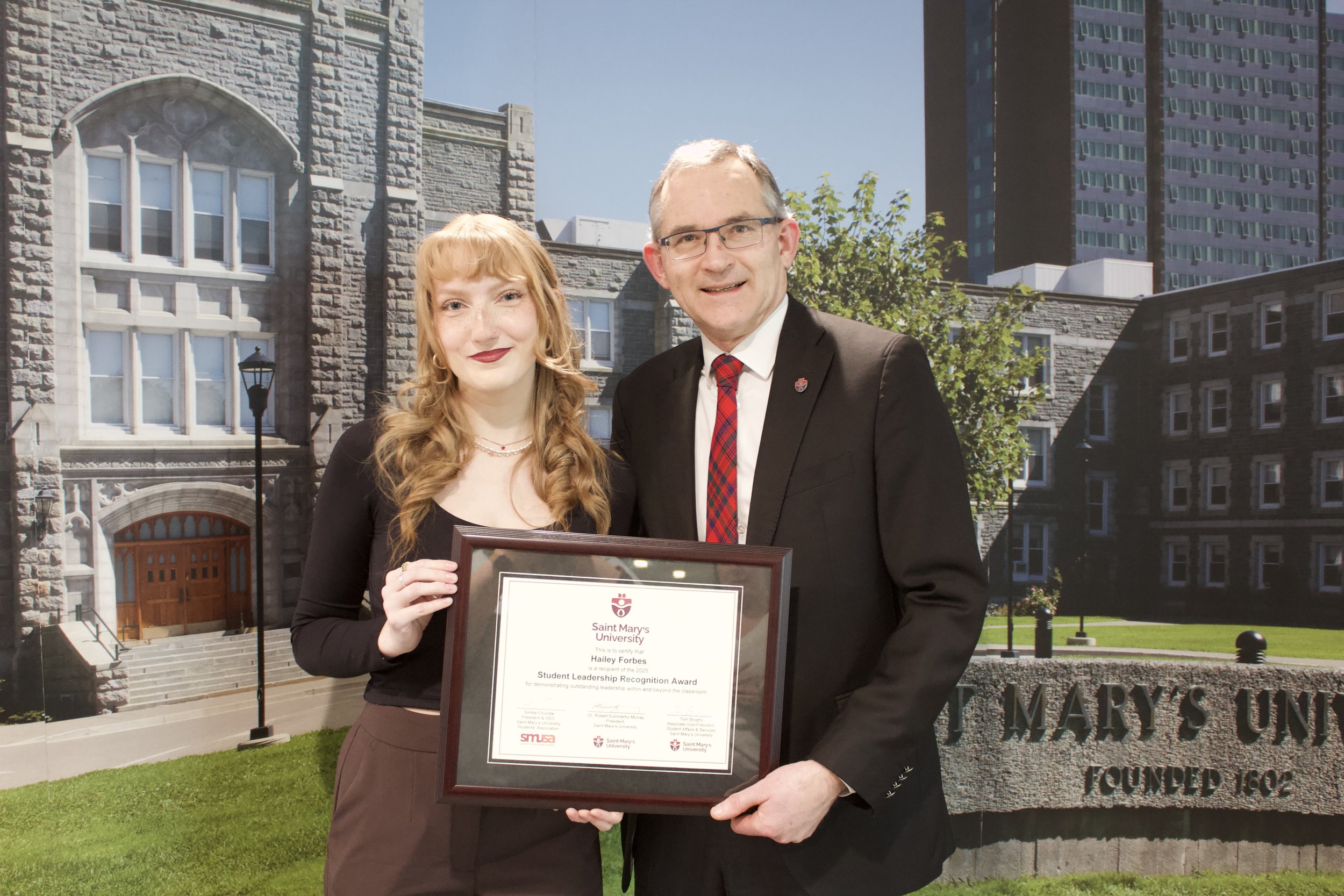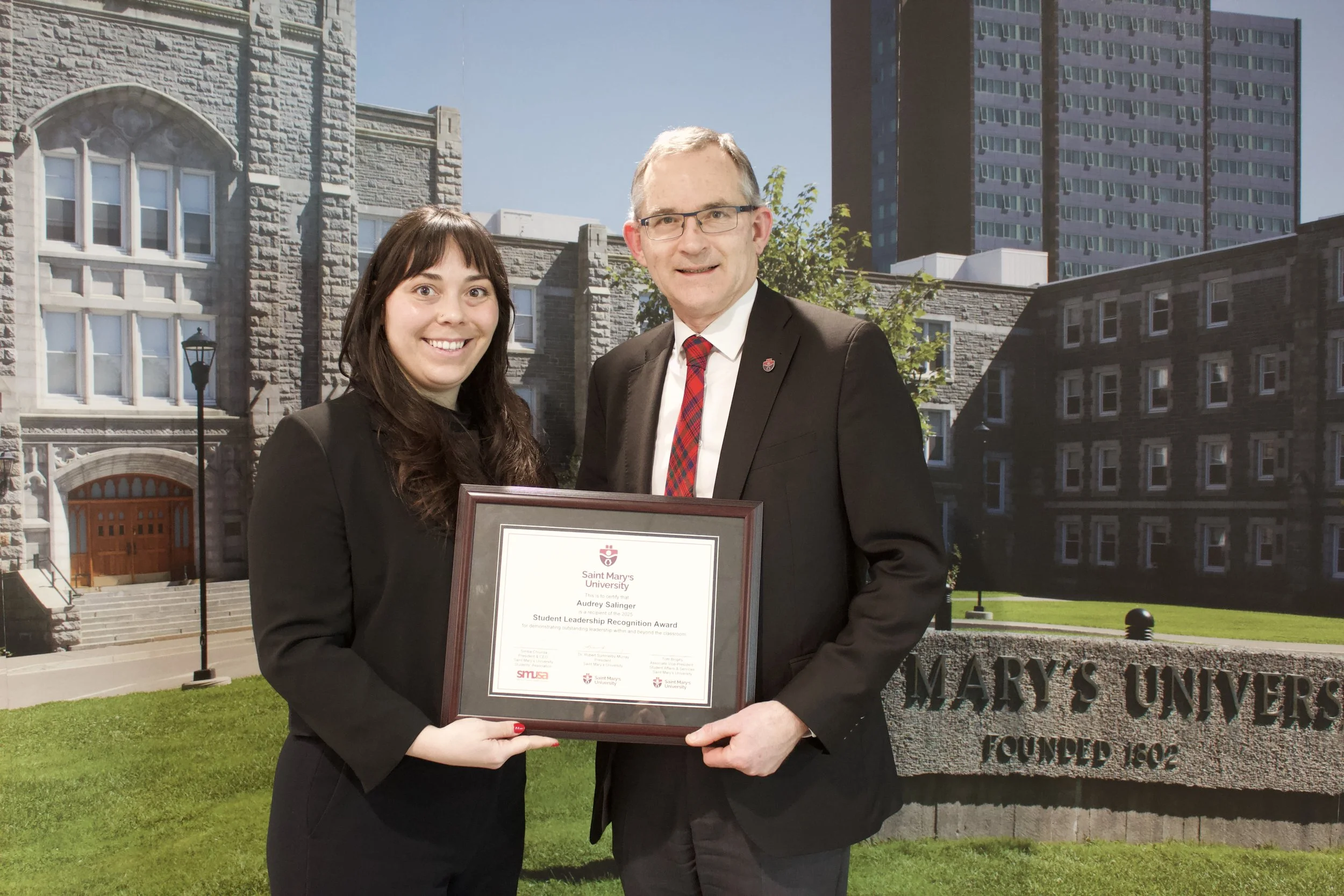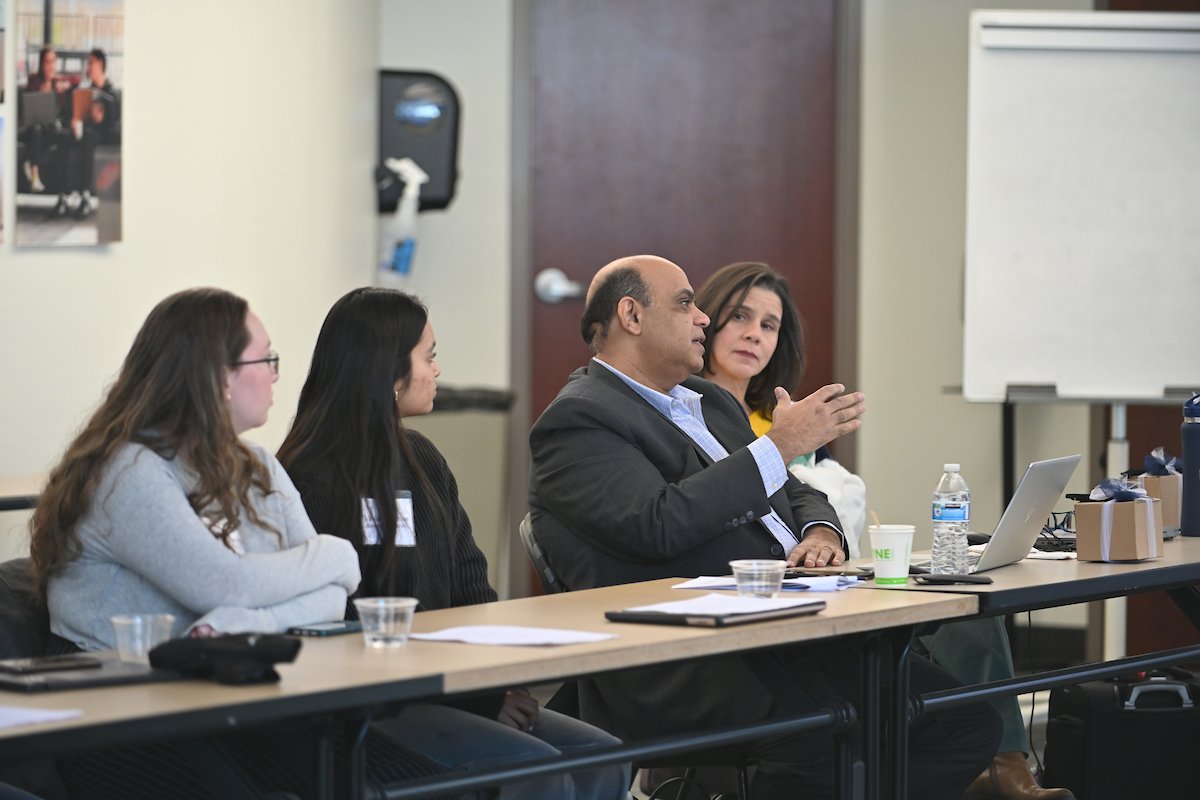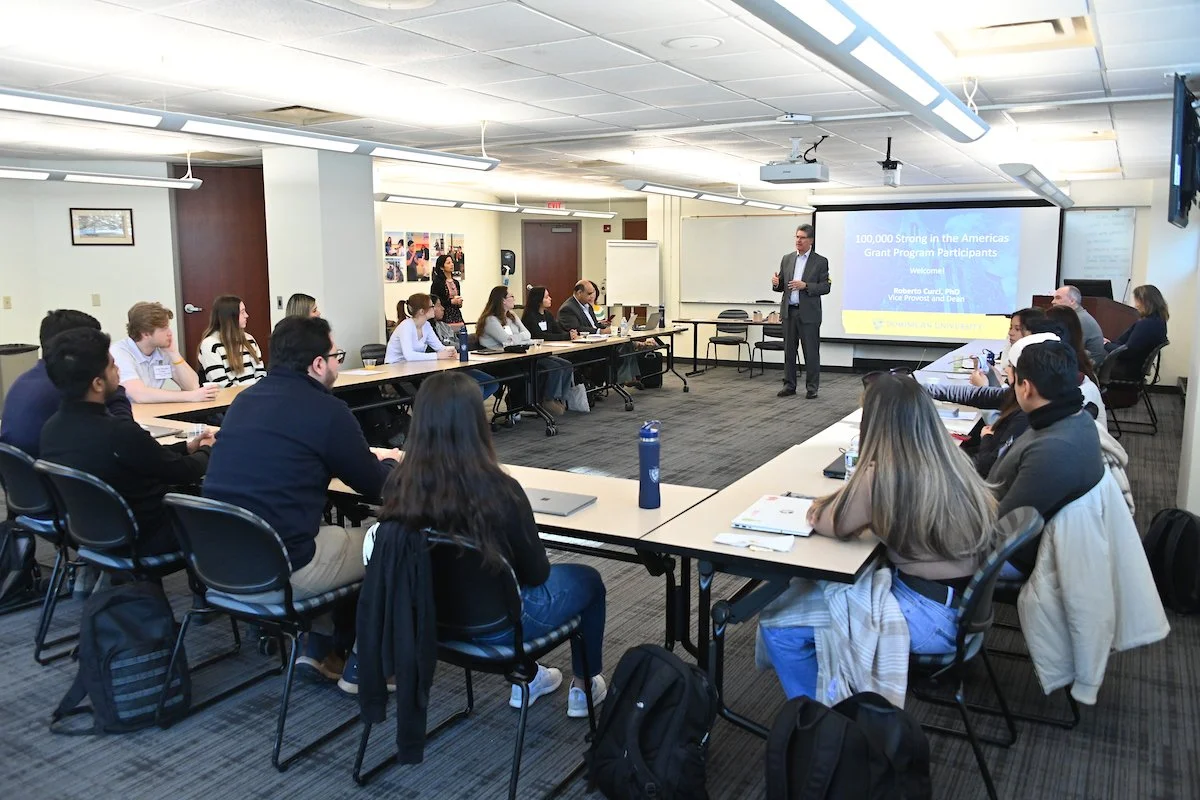Dr. Florian Muenkel works with a student on the Bloomberg Terminals in the Sobey School of Business. The computer software system allows users to monitor and analyze real-time financial market data and place trades on the secure electronic trading platform.
As cryptocurrency fraud incidents increasingly dominate headlines, including a recent RCMP alert highlighting a local scam costing victims over $150,000, Saint Mary's University is proactively stepping forward to prepare students for the emerging realities of digital finance.
Dr. Florian Muenkel, Assistant Professor of Finance at Saint Mary's Sobey School of Business and Academic Director of the IMPACT Investment Fund, has expertise in financial technology (fintech), cryptocurrency, blockchain and digital security, among other areas of finance.
Recently featured on CTV News Atlantic regarding cryptocurrency fraud, Dr. Muenkel underscores the importance of real-world, practical education to protect students and communities.
“Cryptocurrencies, blockchain and other digital payment technologies are becoming integral parts of daily financial interactions,” says Dr. Muenkel. “It is critical that students learn more than financial theory alone.”
Starting in September 2025, Dr. Muenkel will lead an innovative new Special Topics course in FinTech (FINA 4826), open to all eligible Bachelor of Commerce students. Dr. Muenkel combines his expertise in financial technology and derivatives with practical, hands-on experience guiding students in exploring opportunities to disrupt existing financial processes.
The new course will explore the transformative impact of technology on finance, including Decentralized Finance, Robo-Advising, Blockchain, Open Banking, AI and Machine Learning applications in finance, and innovations in payments such as digital wallets and advanced credit card technologies. Students will also gain insights into practical applications from guest speakers in the fintech sector.
Dr. Muenkel is known for his rigorous yet engaging teaching style, equipping students with both theoretical knowledge and real-world financial decision-making skills, ensuring graduates leave Saint Mary’s well-prepared to responsibly navigate the complexities of digital finance.
“Our students will navigate the fintech world confidently but also learn how to shape it responsibly. They will be equipped to critically assess digital financial platforms, understand ethical implications and take proactive roles in preventing fraud.”
The launch of this course reflects the broader mission of the Sobey School of Business to anticipate market trends rather than merely respond to them, ensuring graduates are well-prepared to lead effectively in a rapidly evolving global financial landscape.
As new technologies reshape finance, Sobey School graduates will enter the workforce uniquely prepared, with tangible skills and the confidence to lead safely and innovatively in a complex, fast-paced digital economy.
































